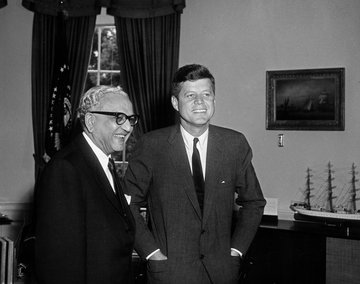
M. C. Chagla
‐
Lawyer, diplomat and politician who studied at Oxford University
Other names
Mahomedali Currim Chagla
Place of birth
Date of arrival to Britain
Location(s)
OX1 3DR
United Kingdom
Place of death
Bombay, India
Date of time spent in Britain
1919–22
About
M. C. Chagla was born in Bombay in 1900. As a young boy he read Morley's Life of Gladstone and formed the ambition to go to Oxford and join Christ Church college as Gladstone had done. In 1919, when Chagla went to Britain, he did not gain admission to Christ Church but did to Lincoln College. Here, Chagla read modern history, with the intention of fostering a public career.
Chagla had a very active social life as a student. He joined the Oxford Union and was elected to the Library Committee in 1921. He was a member of the Oxford Liberal Club, the Oxford Labour Club and Lotus Club. He was an active member of the Oxford Majlis and was elected President in June 1921. Chagla was also heavily involved with the Annual Indian Social Conference, which had begun in 1917 and would meet each year in Derbyshire for lectures, debates, games and excursions.
Whilst studying at Oxford, Chagla also studied for the Bar as a member of Inner Temple. Having earnt a second-class degree and having been called to the Bar, Chagla returned to India in 1922. He joined the Bombay Bar where Jinnah was practising and joined the Muslim League soon after. However, Chagla broke off from the Muslim League when Jinnah began to espouse the two-nation theory. Chagla practised at the Bar from 1922 to 1941 and also taught law at Government College, Bombay. On Indian independence (15 August 1947), Chagla was appointed Chief Justice of Bombay. In 1958, Nehru appointed Chagla as Ambassador to the United States, and then High Commissioner in London in 1961. Between 1963 and 1967 Chagla was Education Minister and then Minister of External Affairs in India.
B. R. Ambedkar (at Government Law College, Bombay), Subhas Chandra Bose (met him in Oxford when Bose would visit his friend), M. A. Jinnah (at Bombay Bar and through Muslim League), K. P. S. Menon (contemporaries at Oxford), Krishna Menon, Jawaharlal Nehru.
Muslim League
Muslims and the Nehru Report (Bombay: Bombay Book Report, 1929)
The Individual and the State (New York: Asia Publishing House, 1961)
An Ambassador Speaks (London: Asia Publishing House, 1962)
Kashmir, 1947–1965 (Delhi: Government of India, 1965)
Education and the Nation (Bombay: Allied Publishers, 1966)
Roses in December: An Autobiography (Bombay: Bharatiya Vidya Bhavan, 1973)
Lahiri, Shompa, Indians in Britain: Anglo-Indian Encounters, Race and Identity, 1880–1930 (London: Frank Cass, 2000)
Mukherjee, Sumita, Nationalism, Education and Migrant Identities: The England-Returned (London: Routledge, 2010)
Symonds, Richard, Oxford and Empire: The Last Lost Cause? (London: Macmillan, 1986)
Visram, Rozina, Asians in Britain: 400 Years of History (London: Pluto Press, 2002)
Papers and correspondence, Nehru Memorial Library, Delhi
Image credit
Meeting with the Ambassador of India, Mohamed Ali Currim Chagla, 12:40PM (JFKWHP-1961-05-22-A)
Public Domain, John F. Kennedy Archives
https://www.jfklibrary.org/asset-viewer/archives/jfkwhp-1961-05-22-a#?image_identifier=JFKWHP-AR6602-A
